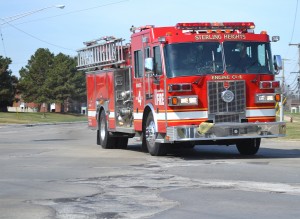Late last night the Michigan House of Representative passed a plan that would raise $1.2 billion to fix Michigan’s infrastructure but relies heavily on state general fund revenue to do so. The plan could have a significant negative impact on the essential services that communities provide and Michigan Municipal League has consistently expressed our concern with any road funding solution that would jeopardize the long-term fiscal sustainability of this state and its communities.
This plan contains $600 million in new revenue and $600 million in general fund revenue. The new revenue would be generated by increasing gas taxes by 3.3 cents and registration fees by 40%. The plan does not identify where the existing revenue will come from. The following bills were included in the House passed plan.
• HB 4370 provides $200 million in tax relief by expanding the Homestead Property Tax Credit and also dedicates $600 million of income tax revenue to transportation. Based on current revenue and expenditure projections, this statutory dedication of General Funds would not result in a year end budget deficit greater than $60 million in the next five years.
• HB 4736 increases passenger and commercial vehicle registrations an average of $55 (40%) per vehicle. Additionally, the bill provides for plug-in hybrid ($30) and electric ($100) vehicle registration fee increases resulting in $400 million revenue increase for transportation.
• HB 4614, HB 4616, and HB 4738 provide for gas/diesel tax increases to 22.3 cents (increase of 3.3 cents) per gallon by 2019. The bills also implement diesel parity, institute a process for taxing alternative fuels, and tie the fuel tax rate to inflation resulting in $200 million revenue increase for transportation.
• HB 4610 allows townships contributing 50% or more to a road project to require an RFP for pavement projects over $50,000 and gravel projects over $25,000.
• HB 4611 requires an RFP process for all projects over $100,000 for MDOT. Local road agencies must do RFPs for all projects, excluding routine maintenance, over $100,000, unless the local road agency affirmatively finds that they can do it themselves for less.
• HB 4737 requires MDOT and local road agencies to secure warranties, where possible, for construction and preservation projects over two million dollars.
• SB 414 creates an automatic rollback of the income tax rate equal to the amount General Fund revenue exceeds the rate of inflation annually. The rollback begins on January 1, 2019 and the tax cut level will be dictated by annual General Fund levels and will vary from year to year.
The League strongly encourages Governor Snyder and quadrant leaders to restart their conversation and come up with a road funding plan that does not jeopardize the essential services that Michigan citizens rely on, such as police and fire protection, schools and public transit.
Additionally, the League encourage you to reach out to your individual Senator and ask them to pass a long-tern fiscally sustainable solution that relies more on new revenue and less on general fund revenue , does not jeopardizes future state budgets and does not negatively impact the essential services communities provide.
View a League media statement on the House roads plan.
John LaMacchia is a Legislative Associate for the League handling transportation, infrastructure, and energy issues. He can be reached at jlamacchia@mml.org or 517-908-0303.



